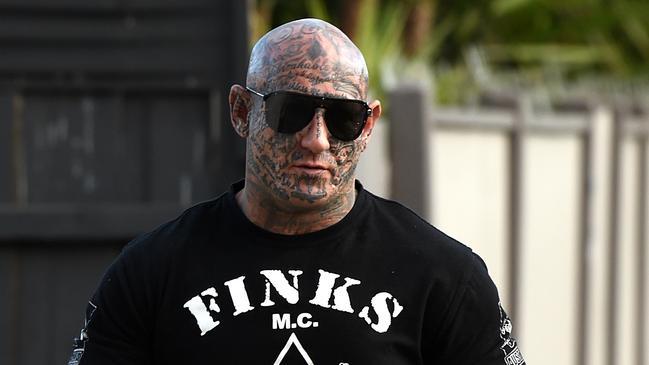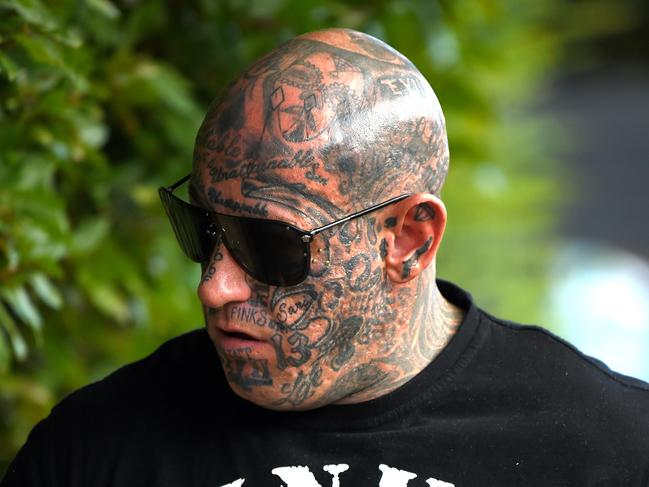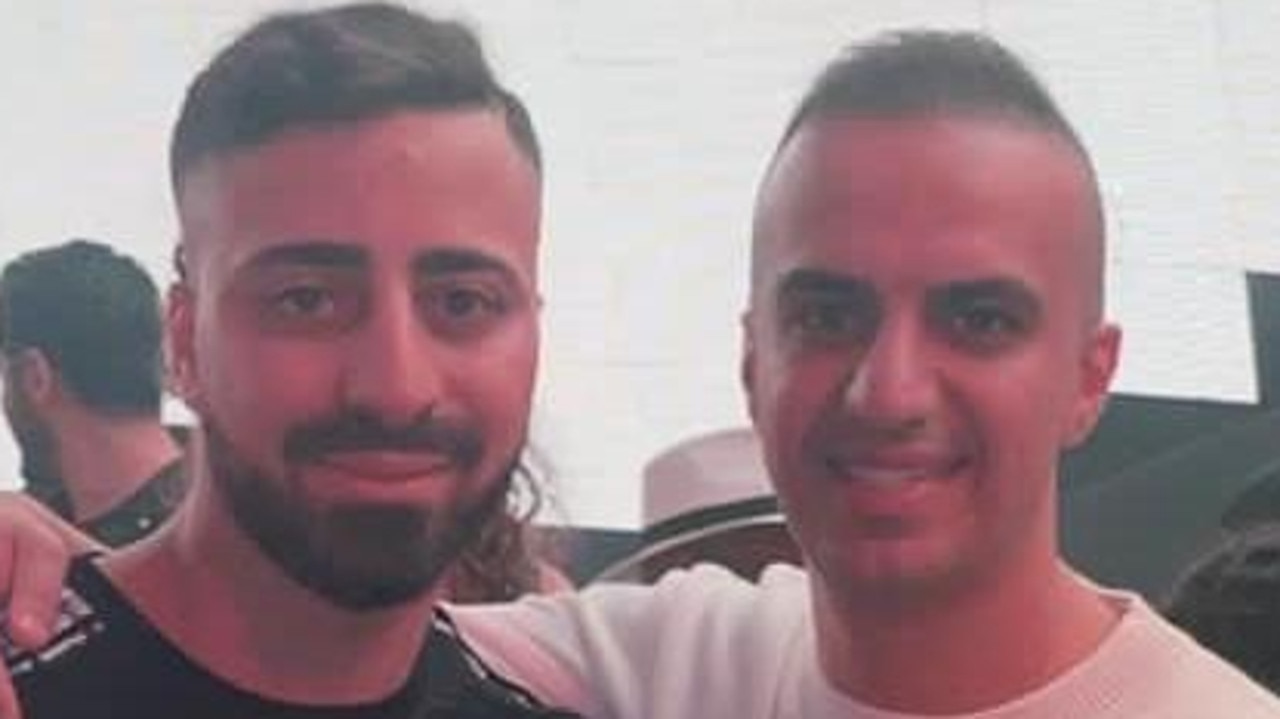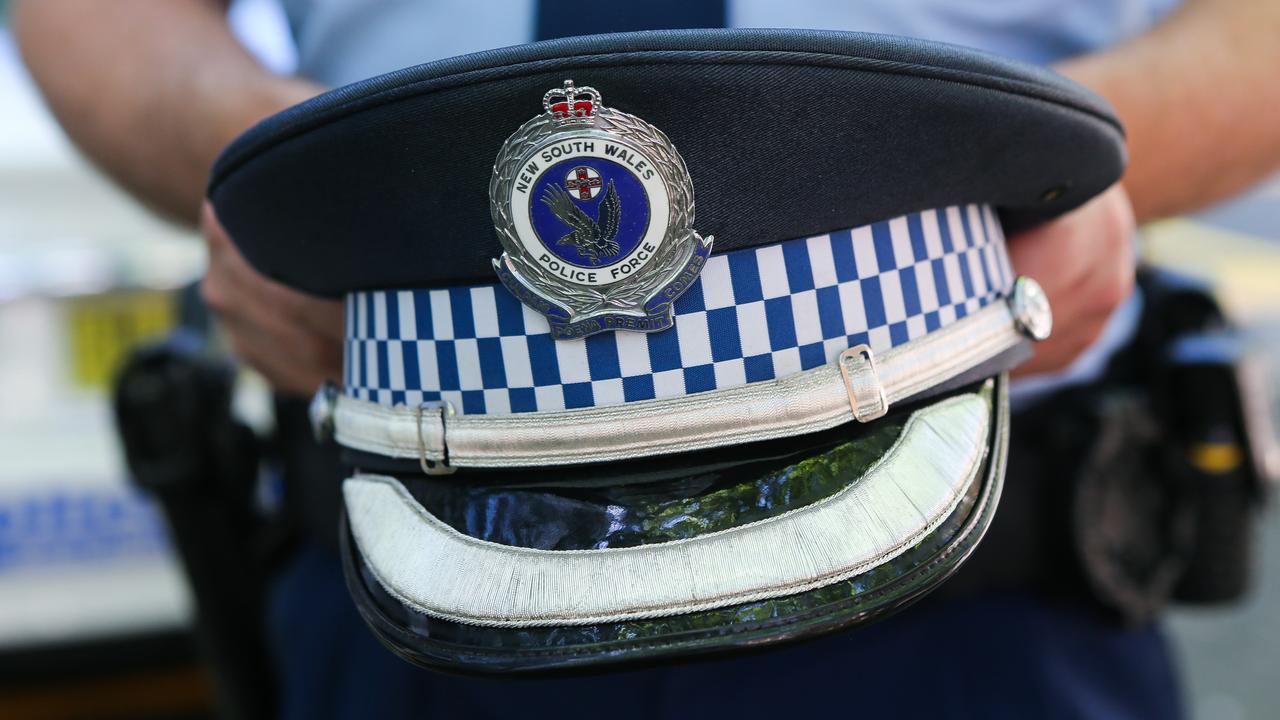Brent Reker inquest: Fears bikie boss was planning ‘mass self harm’ event in jail
An inquest has heard concerning new details in the case of a former national president of the Finks who took his own life at Ravenhall prison.

True Crime
Don't miss out on the headlines from True Crime. Followed categories will be added to My News.
A bikie boss found dead in his cell was transferred out of a specialist mental health unit because prison staff feared he was organising a “mass self-harm” event.
Brent ‘BJ’ Reker, 35, the heavily tattooed former national president of the Finks, took his own life after barricading himself in his cell at Ravenhall Correctional Centre.
The Coroner’s Court on Monday heard Reker was moved from the specialist mental health ‘Moroka’ unit to another section of the prison where inmates are separated an hour before his December 2019 death amid concerns he would influence other prisoners to self-harm.
The inquest is investigating why Reker — who was on remand for serious, violent drug and weapon offences — was removed from the unit, if it contributed to his death and if staff were aware of his previous suicide attempts in custody and mental health history.

The Moroka unit provides specialised care, treatment and programs for prisoners with complex mental health needs and Reker was moved there from Port Phillip Prison about three weeks before he took his own life.
Correctional manager Malcolm Garth told the inquest Reker had influence over other inmates and some officers believed the mood in the unit had deteriorated after his arrival.
He said medical staff were also afraid of him after he approached a nurse in a threatening and intimidating manner.
Mr Garth said he was aware Reker had told prison staff that a mass self-harm event was being planned but he did not believe it was a real threat as the inmates were annoyed that their planned dental appointments had been cancelled.
“I think those particular comments were probably some form of an attempt to manipulate us to get an outcome,” he said.
Another correctional manager at the time, Kate McMahon, who described Reker’s suicide as a “worst nightmare” for prison authorities, said she had concerns for her staff, other inmates and the integrity of the unit’s program.
After a number of meetings, Forensicare and custody staff agreed Reker would be transferred from the unit to another section of the prison where inmates are isolated from one another.
A consultant psychiatrist was to speak with him prior to his removal but they had already left the unit before it could be done.
Body-worn camera footage played to the inquest showed Reker swallowing metal debris and arguing with officers as they came to collect him from his cell.
“I hope you’re happy now,” he said.
A psychiatrist went to Reker’s new cell about 3.30pm but the window was blocked by toilet paper and he did not respond to their calls.
His mattress had been pushed against the door and staff called a “code black” medical emergency after he was found lying unconscious on the floor of the shower.
The court heard Reker was deemed to be in the lowest self-harm risk category at the time of his death despite his repeated threats and prior suicide attempts in custody and not all staff members were aware of his mental health history.
The inquest, before coroner Paul Lawrie, continues.
Originally published as Brent Reker inquest: Fears bikie boss was planning ‘mass self harm’ event in jail




